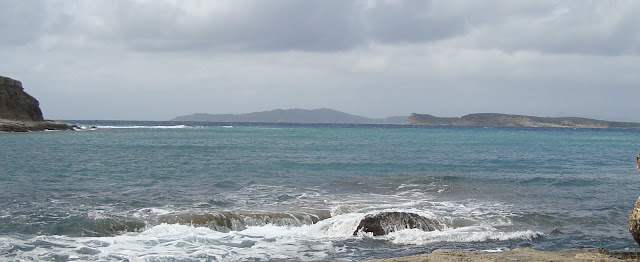Early November 2021? Will it be much the same as early November 2020 when the Coronavirus pandemic persisted in being as unfamiliar to its millions of victims as myxomatosis was to rabbits when it first began to kill them, or as the citrus scale insects were to the lemon and orange trees of Corfu – now blighted, and even killed, from one end of the island to the other. We’ve sprayed our two lemons and orange with doses of olive oil soap dissolved in water mixed with cider vinergar – a cup to 10 litres of grey soapy water.
When we arrived 9 weeks ago, we found to our delight, at least one of our trees laden with lemons, now, in November, turning yellow. The orange is blackened by mould on its leaves, trunk and branches, lacking the new shoots and even blossom that we see on the lemon, whose top growth I can examine from our balcony. At the local garden shop Evangelina has recommended a spray – a mix of Sivanto (2.5 m/l to 5 litres water) and Electro pesticide (ditto mix) - to kill, and by resting on the leaves, break the life cycle of the ‘black spiny insects’ as she calls them.
“Yes! They are now all over Corfu since three years. We had a meeting of agronomists from here and from the mainland, where in many places citrus is a commercial crop. They said this infestation is confined to Corfu. 'We are not worried'. They are wrong. It will go there.”
** ** **
I said to Lin “I’d like to drive to San Stephano to see of I can find out how you get a ferry to the Diapontian Islands”"I think you're mad"
 |
| The Diapontian Islands off San Stephano Harbour |
How the days have passed. So swiftly. It’s now a little chilly in the evenings. Lin and I keep warm with more woollies and an electric fire – on and off - at supper; sometimes watching police procedurals in icy places like Helsinki northwards on Netflix. For days the sky has been almost cloudless.
We've been rebuilding the balcony bannisters. They were becoming hazardous, even rotting in places. I’ve just dug out two olive planks, used for a makeshift door that I found years ago in the apothiki. I suspect two house builders were laying a fine tongued and groove floor, and agreed to keep two off-cuts. After removing most of the nails and sanding bare, I sawed squares, drawn out by Lin to miss the cracks and remaining nails in the hard sweet smelling wood. These now top and protect the balcony uprights.














